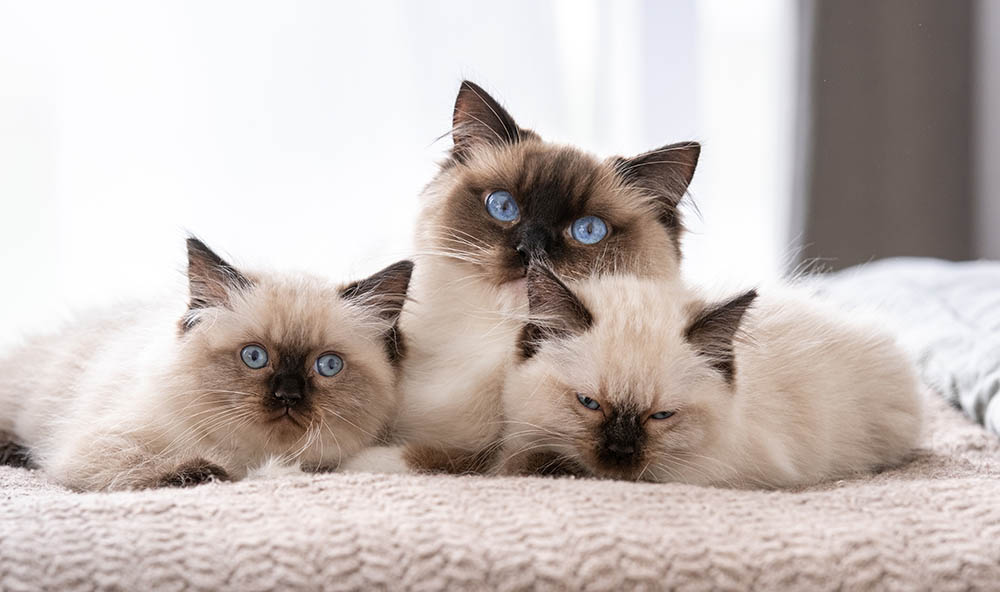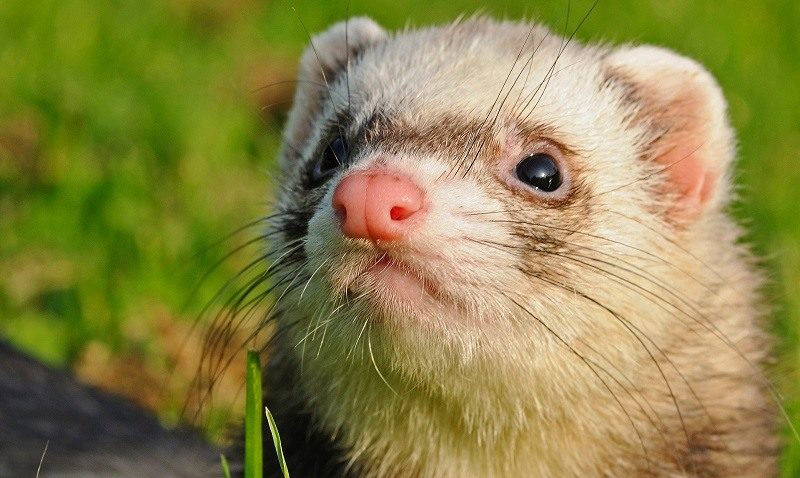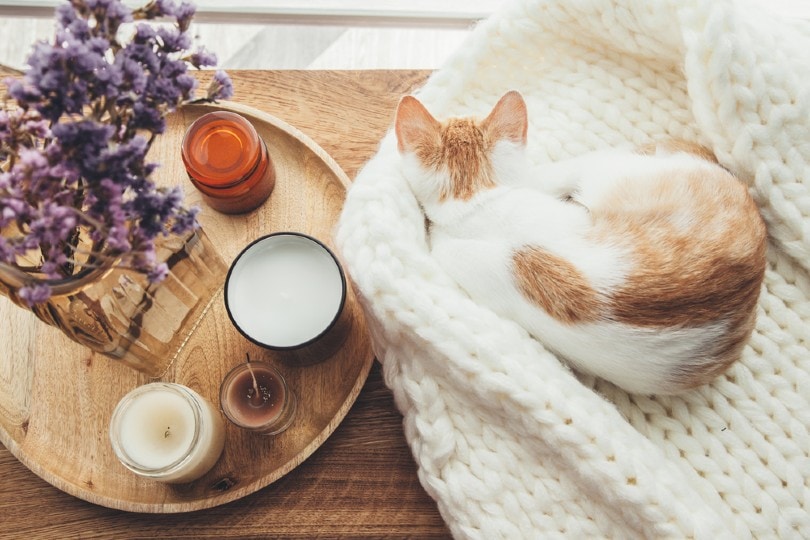VET APPROVED

The information is current and up-to-date in accordance with the latest veterinarian research.
Learn more »Many people who want to add a pedigreed or rare breed of cat to their household are seeking out cat breeders as a way to find their next four-legged friend. Cat breeders are more common and accessible than some people think. However, if you are going to a cat breeder for the first time, you want to get as much information about them and their animals as you can before making a purchase.
Here, we go over the top 10 questions that you should ask a cat breeder in person while also seeing the parent cats and the kitten you want to get, and why doing so is essential.

Top 10 Questions to Ask a Cat Breeder
1. Why did you become a breeder?
While this may sound like an overly general question, understanding the breeder’s motivation is wise. If the breeder gives a seemingly disinterested answer, they might not be passionate about their work. That could reflect on how the animals are kept and treated. In addition, if the breeder’s answer only focuses on money, that might be another indication that the overall well-being of the cats may be low on their list.
Finding a breeder who is passionate about what they do, promoting the health and welfare of the breed and their individual animals, and being particular about the home to which they sell their animals to, shows how much they care about the future of the kittens, and this is crucial.
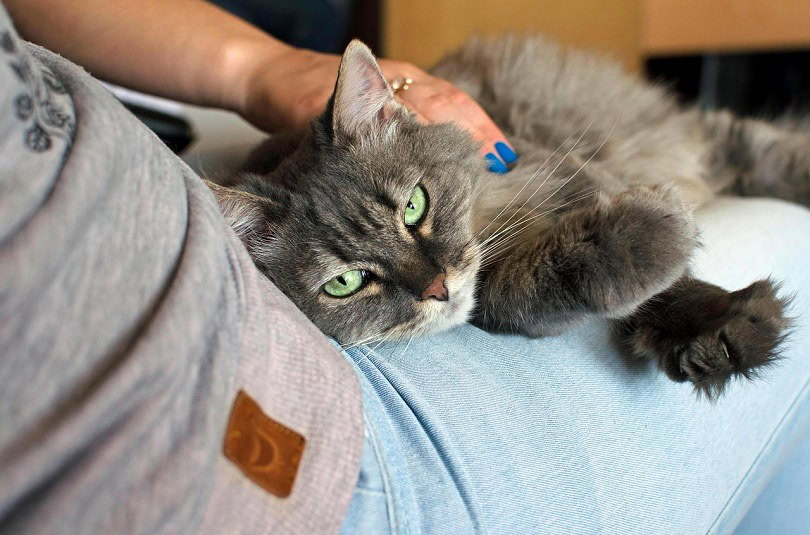
2. How often do you breed your cats?
A cat’s gestation period is approximately 2 months, meaning a cat could give birth three to four times a year, however, this is rare. Having that many litters each year is not healthy for the mother cat. She will not have enough time to properly nurse or tend to her kittens if she gets pregnant too soon, nor will her body have the time to recover. A breeder should make sure that the mother cat can be bred safely when her kittens have properly been weaned. If a mother has too many litters, this could mean the breeder wants to sell as many kittens as they can and fast, without concern for the mother cat.
3. Are you a registered breeder through an association?
If you are looking for a pedigree cat breed on websites like the Cat Fanciers’ Association (CFA) or The International Cat Association, all the breeders advertising there are CFA-registered catteries. What does that mean? Registered catteries must meet specific standards regarding the facility, enclosures, cleaning and sanitation, healthcare, and cat safety. If you look for breeders outside of those associations’ websites, be aware of potential scams. Some could try to falsify registry documents to sell kittens without meeting the standards.
4. Has there been any history of diseases among your cats and kittens, and which health and genetic tests have been performed?
It is important to ask about any history of diseases among the kitten’s parents and overall lineage, as well as the health and genetic testing that is available for each specific breed. Genetic issues can get passed from the parents to your kitten, or may skip a generation or two before becoming an issue. Reputable breeders will have their animals health tested and will be able to show you a proof of the results throughout the lineage, for the most common hereditary health issues present in the breed.
If you have any further questions about hereditary issues, we suggest speaking to one of our veterinarians.
5. What medical procedures are included with the purchase of the kitten?
Many breeders will include primary medical procedures done to the kitten before they go home with you. Those basics may include a vet check, primary vaccinations, and deworming. Some kittens will have their DNA tested for heart disease, also called HCM and PKD, polycystic kidney disease. Since these additions vary from breeder to breeder, it is vital to know what the breeder is offering so you can compare it to other breeders.
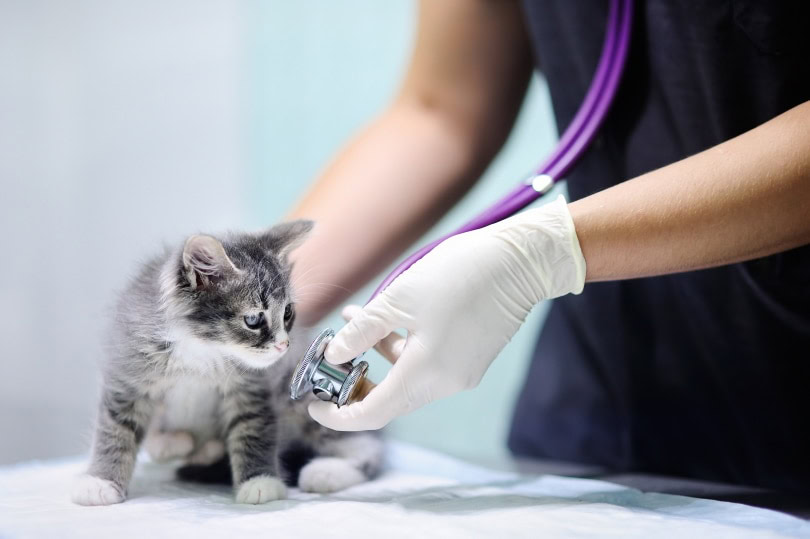
6. What kind of congenital defects or health conditions are associated with this breed?
It might be tempting to buy a kitten based on cuteness and personality alone. However, you want to be aware of any potential congenital defects or health conditions that are associated with this breed. Is the feline more prone to polycystic kidney disease? What about issues with their eyesight? What’s their average lifespan? Having a conversation about these potential health issues should be considered when getting a kitten from a breeder.
7. What do you recommend feeding the kitten?
Some breeders will give you some food to get you started. This can give you an idea of what you can continue to feed your kitten, so they have consistency, especially over the first few weeks. However, it is good to consider some other choices that are recommended by the breeder as well as your veterinarian. In addition, you can inquire about food choices for them as adults.
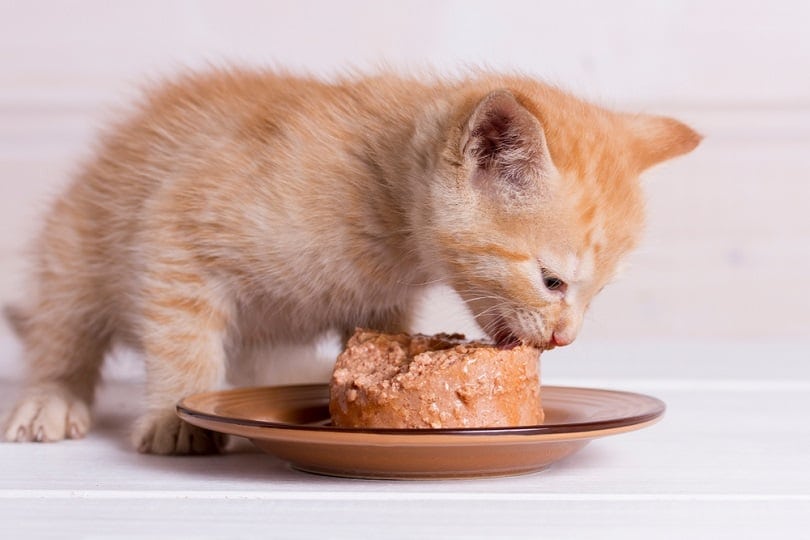
8. What makes this kitten pet-quality/show-quality?
You might be going to a breeder because you are looking for a show-quality cat. You might also be looking for a pedigree cat for a pet. Whichever your choice, you want to know what makes the individual cat a great show cat or a lovable pet.
9. What guarantees come with the kitten?
If you are buying from a breeder, the cat can be costly because you are expecting a high-quality feline. But what if your kitten does get sick? Reputable breeders will have the proper paperwork, results of health testing, and certifications verifying the kitten’s health. However, it is wise to inquire about any “what ifs” with the breeder.
10. What has been your favorite experience as a cat breeder?
Cat breeders will have so many stories about their experiences! Asking them to share some of their stories is a great way to bond and get to know the breeder on a personal level. After all, your communication with them should continue for the rest of your cat’s life, and should not stop after you get the kitten. A responsible breeder will want to stay in touch with you, so they can check on the kitten’s progress.


Final Thoughts
While it can be hard to ask some of these questions to a cat breeder, remember that an honest and caring breeder will be open with their answers and will offer them even before you ask the question. They will show how much they care about their cats and kittens and the reputation of their practices. A good cat breeder also wants to make sure their kittens go to homes where they will be cared for by loving owners. Asking these and other similar questions shows them that you will be an incredible and dedicated cat owner.
Related Reads:
Featured Image Credit: Tatyana Vyc, Shutterstock
Contents
- Top 10 Questions to Ask a Cat Breeder
- 1. Why did you become a breeder?
- 2. How often do you breed your cats?
- 3. Are you a registered breeder through an association?
- 4. Has there been any history of diseases among your cats and kittens, and which health and genetic tests have been performed?
- 5. What medical procedures are included with the purchase of the kitten?
- 6. What kind of congenital defects or health conditions are associated with this breed?
- 7. What do you recommend feeding the kitten?
- 8. What makes this kitten pet-quality/show-quality?
- 9. What guarantees come with the kitten?
- 10. What has been your favorite experience as a cat breeder?
- Final Thoughts
